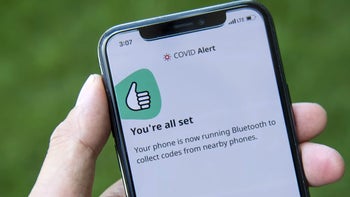Guess which government got billed $20 million for a COVID app that few use

In the beginning of the COVID-19 craze, one of the high-value, low-expense moves that could be done by every government was to introduce an alert app for its citizenry to carry on their iOS and Android phones at all times.
These ranged from really useful stuff like tracking and tracing potential carriers in your whereabouts, to simply listing the current precautionary and health measures you needed to observe.
Sometimes, like in the case of the Robert Koch Institute, they did both, and are now even incorporating your vaccination, antibody, or testing certificates, as a real one-stop shop solution against the pandemic's twists and turns.
Not all apps are created equal, though, and some fell victims to poor design or slower uptake. Heck, even the unprecedented Apple-Google tie-up on crossplatform COVID tracking met privacy and security tribulations amongst the general public.
Canada, the country associated with a robust and inexpensive single-payer healthcare system, developed one such app too, tips Global News, precisely to warn individuals they might be in the vicinity of a carrier. It used the same Bluetooth LE detection technology as the Apple-Google partnership to alert anyone that has been near a phone whose user tested positive that they'd need a test.
While 6.6 millions initially downloaded the app, people skipped the most important requirement of using it - self-reporting their positive COVID-19 tests - and only 70,000 exposure notifications were in fact sent to people via the COVID Alert app.
Some of those have, of course, been repeated notifications to a single phone, whose owner's ward work means they'd be in frequent contact with COVID patients, too, for instance, so the overall uptake may have been even lower.
That didn't prevent the Canadian government from spending nearly $20 million on the COVID Alert app, though - a full $3.5 million for its development and maintenance, and $16 million on advertising it for the masses.

Talk about a dev bonanza and government largesse, yet something tells us that many such apps may have suffered the same fate with similar outlays from the taxpayer. Sometimes, there simply isn't an app for that, especially when folks are worried about their privacy rights and personal health data sharing. Well, save for the German app, but these guys are well disciplined, alright.










Things that are NOT allowed: